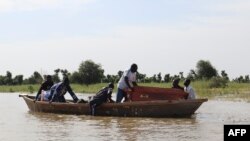Hurricane Ian, the single largest loss-causing event so far this year, caused an estimated insured loss of $50-65 billion alone, with total insured losses topping $100 billion for a second consecutive year, said Swiss Re.
The Zurich-based group, which acts as an insurer for insurers, estimated that Hurricane Ian caused the second-costliest insured loss ever, after Hurricane Katrina in 2005.
Swiss Re added that so-called secondary natural disasters such as floods and hailstorms caused more than $50 billion of insured losses.
The winter storms in Europe in February prompted estimated insured losses of over $3.7 billion, putting winter storms back on the insurance industry's agenda, it said.
And in February and March, torrential summer rains led to widespread flooding in Australia that, at an estimated $4 billion, is the country's costliest-ever natural catastrophe.
The Zurich-based group, which acts as an insurer for insurers, estimated that Hurricane Ian caused the second-costliest insured loss ever, after Hurricane Katrina in 2005.
"Hurricane Ian and other extreme weather events such as the winter storms in Europe, flooding in Australia and South Africa as well as hailstorms in France and in the United States resulted in an estimated $115 billion of natural catastrophe insured losses this year to date," Swiss Re said in a statement.
"Urban development, wealth accumulation in disaster-prone areas, inflation and climate change are key factors at play, turning extreme weather into ever rising natural catastrophe losses," said Martin Bertogg, Swiss Re's head of catastrophe perils.
"When Hurricane Andrew struck 30 years ago, a $20 billion loss event had never occurred before; now there have been seven such hurricanes in just the past six years."
